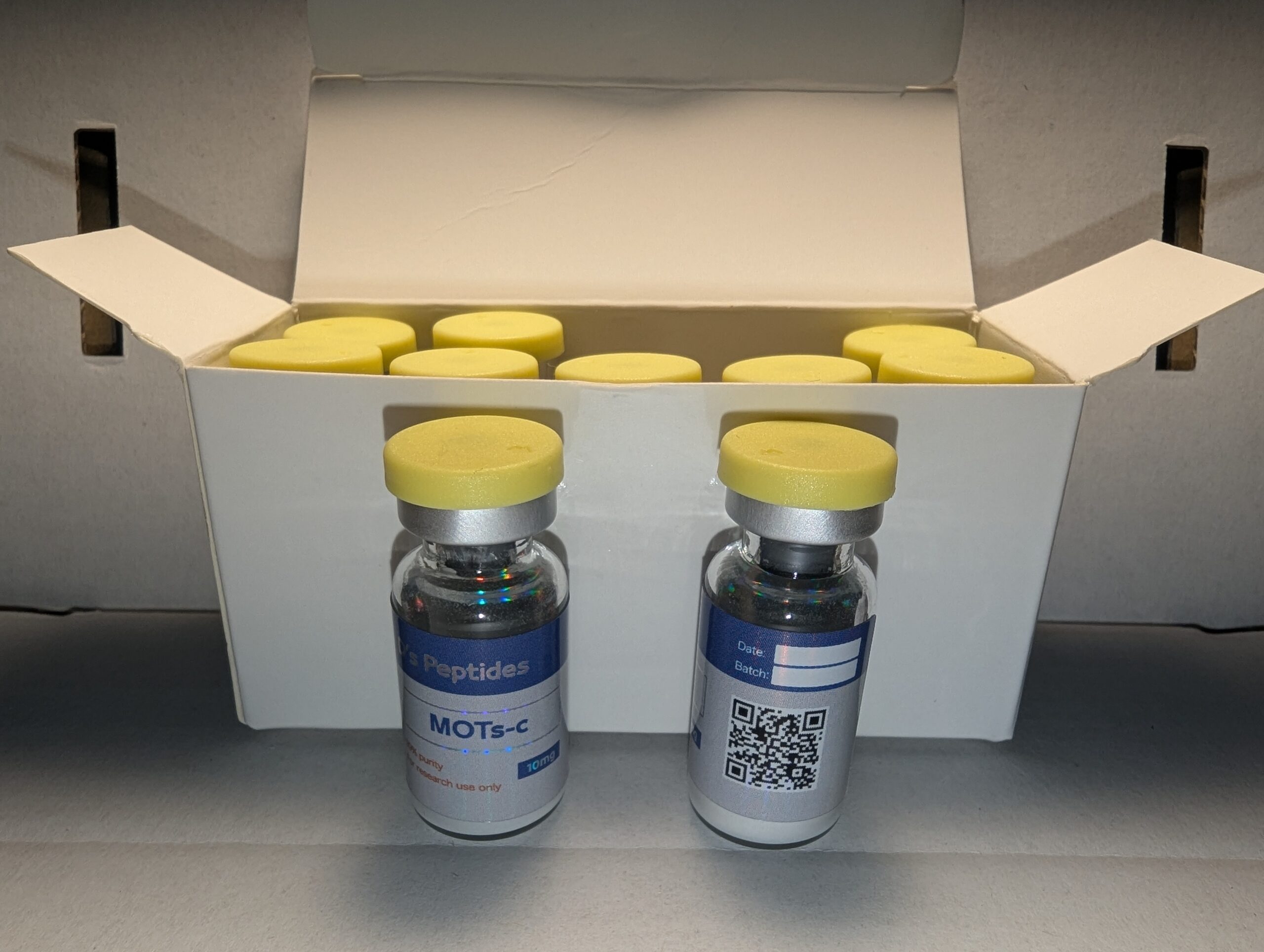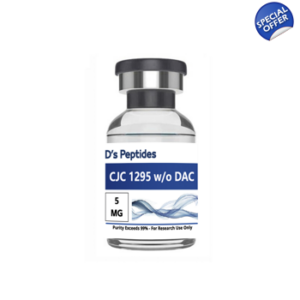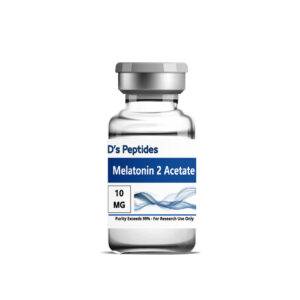All products spoken about or shown are not intended for human consumption in any way. Products listed are offered for use in research only and should not be for human use.
10mg Mots-C Vial
Further research in osteoporosis has shown that MOTS-c promotes the differentiation of bone marrow stem cells through the same TGF-beta/SMAD pathway, leading to increased osteogenesis (formation of new bone). Thus, MOTS-c not only protects osteoblasts and supports their survival but also promotes their development from stem cells.
Longevity Studies on MOTS-c have identified a specific genetic variation in the peptide associated with longevity in certain populations, such as the Japanese. This genetic change involves substituting a glutamate residue for the lysine normally found at position 14 of the protein. While the functional implications of this change are not yet fully understood, it is exclusive to individuals of Northeast Asian ancestry and is believed to contribute to their exceptional longevity.
According to Dr. Changhan David Lee, a researcher at the School of Gerontology at USC Leonard Davis, mitochondria are crucial for extending both lifespan and healthspan in humans. Mitochondria are strongly implicated in aging and age-related diseases. Previously, dietary restriction was the primary method to influence mitochondrial function and longevity. Peptides like MOTS-c, however, may offer a more direct way to impact mitochondrial function.
Heart Health Research involving patients undergoing coronary angiography has revealed that individuals with lower levels of MOTS-c in their blood exhibit higher levels of endothelial cell dysfunction. Endothelial cells, lining the interior of blood vessels, play a crucial role in regulating blood pressure, blood clotting, and plaque formation. Studies in rats suggest that while MOTS-c doesn’t directly affect blood vessel responsiveness, it does sensitize endothelial cells to the effects of other signaling molecules, like acetylcholine.
Supplementation with MOTS-c has been shown to enhance endothelial function and improve the function of microvascular and epicardial blood vessels.
MOTS-c is not the only mitochondria-derived peptide (MDP) affecting heart health. Research Further research in osteoporosis has shown that MOTS-c promotes the differentiation of bone marrow stem cells through the same TGF-beta/SMAD pathway, leading to increased osteogenesis (formation of new bone). Thus, MOTS-c not only protects osteoblasts and supports their survival but also promotes their development from stem cells.
Longevity Studies on MOTS-c have identified a specific genetic variation in the peptide associated with longevity in certain populations, such as the Japanese. This genetic change involves substituting a glutamate residue for the lysine normally found at position 14 of the protein. While the functional implications of this change are not yet fully understood, it is exclusive to individuals of Northeast Asian ancestry and is believed to contribute to their exceptional longevity.
According to Dr. Changhan David Lee, a researcher at the School of Gerontology at USC Leonard Davis, mitochondria are crucial for extending both lifespan and healthspan in humans. Mitochondria are strongly implicated in aging and age-related diseases. Previously, dietary restriction was the primary method to influence mitochondrial function and longevity. Peptides like MOTS-c, however, may offer a more direct way to impact mitochondrial function.
Heart Health Research involving patients undergoing coronary angiography has revealed that individuals with lower levels of MOTS-c in their blood exhibit higher levels of endothelial cell dysfunction. Endothelial cells, lining the interior of blood vessels, play a crucial role in regulating blood pressure, blood clotting, and plaque formation. Studies in rats suggest that while MOTS-c doesn’t directly affect blood vessel responsiveness, it does sensitize endothelial cells to the effects of other signaling molecules, like acetylcholine.
Supplementation with MOTS-c has been shown to enhance endothelial function and improve the function of microvascular and epicardial blood vessels.
MOTS-c is not the only mitochondria-derived peptide (MDP) affecting heart health. Research suggests that at least three MDPs play roles in protecting cardiac cells from stress and inflammation, potentially playing a role in cardiovascular disease development and reperfusion injury.
MOTS-c has demonstrated minimal side effects, low oral availability, and excellent subcutaneous bioavailability in mice. However, the dosage in mice does not scale directly to humans. that at least three MDPs play roles in protecting cardiac cells from stress and inflammation, potentially playing a role in cardiovascular disease development and reperfusion injury.
MOTS-c has demonstrated minimal side effects, low oral availability, and excellent subcutaneous bioavailability in mice. However, the dosage in mice does not scale directly to humans.






